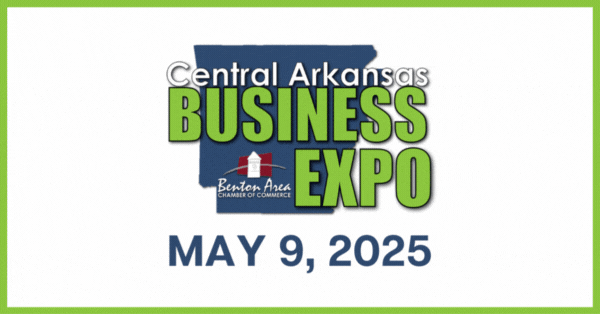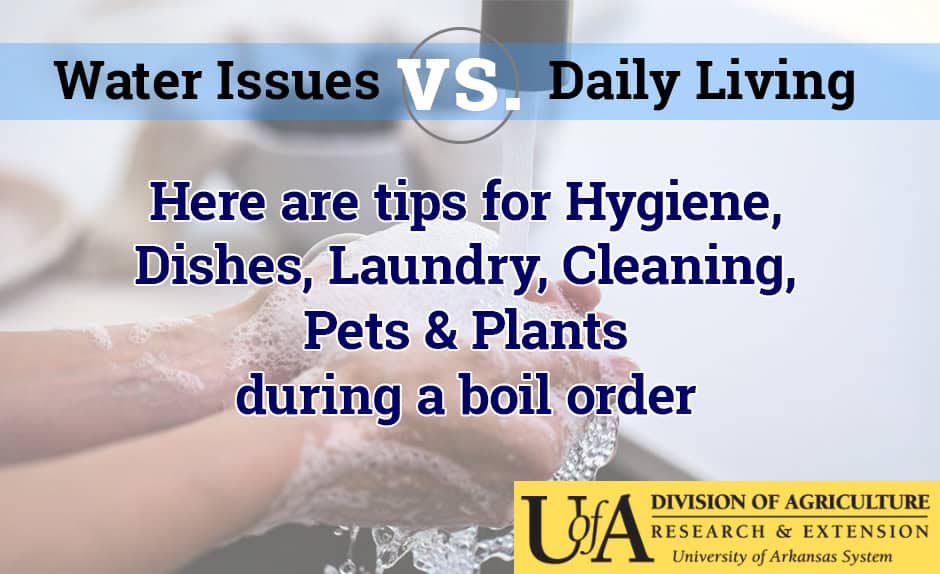Many of you are asking what’s ok and not ok when there is a boil order. The University of Arkansas Extension office (UAEX) and CDC have laid out tips for Hygiene, Dishes, Laundry, Cleaning, Pets & Plants for your water services. Note that some communities may be under a water conservation order as well, so remember that when thinking about how much of each activity you will do.
Advisories may include information about preparing food, beverages, or ice; dishwashing; and hygiene, such as brushing teeth and bathing. Standard recommendations usually include this advice:
- Use bottled or boiled water for drinking, and to prepare and cook food.
- If bottled water is not available, bring water to a full rolling boil for 1 minute (at elevations above 6,500 feet, boil for 3 minutes), then allow it to cool before use.
- Boil tap water even if it is filtered.
- Do not use water from any appliance connected to your water line, such as ice and water from a refrigerator.
- Breastfeeding is the best infant feeding option. If you formula feed your child, provide ready-to-use formula, if available.
Handwashing
- In many situations, you can use tap water and soap to wash hands. Follow the guidance from your local public health officials.
- Be sure to scrub your hands with soap and water for at least 20 seconds, and rinse them well under running water.
- If soap and water are not available, use an alcohol-based hand sanitizer that contains at least 60% alcohol.
Bathing and showering
- Be careful not to swallow any water when bathing or showering.
- Use caution when bathing babies and young children. Consider giving them a sponge bath to reduce the chance of them swallowing water.
Brushing teeth
- Brush teeth with boiled or bottled water. Do not use untreated tap water.
Washing dishes
- If possible, use disposable plates, cups, and utensils during a boil water advisory.
- Household dishwashers generally are safe to use if the water reaches a final rinse temperature of at least 150 degrees Fahrenheit (65.55°Celsius), or if the dishwater has a sanitizing cycle.
- Sterilize all baby bottles.
- To wash dishes by hand:
- Wash and rinse the dishes as you normally would using hot water.
- In a separate basin, add 1 teaspoon of unscented household liquid bleach for each gallon of warm water.
- Soak the rinsed dishes in the water for at least one minute.
- Let the dishes air dry completely before using again.
- To wash dishes by hand:
Laundry
- It is safe to wash clothes as usual.
Cleaning
- Use bottled water, boiled water, or water that has been disinfected with bleach pdf icon[PDF – 1 page] to clean washable toys and surfaces.
Caring for pets
- Pets can get sick by some of the same germs as people or spread germs to people. Provide bottled or boiled water after it has been cooled for pets to use.
- If bottled water is not available, bring water to a full rolling boil for 1 minute (at elevations above 6,500 feet, boil for 3 minutes), then allow it to cool before use.
- Boil tap water even if it is filtered.
- Do not use water from any appliance connected to your water line, such as ice and water from a refrigerator.
Caring for your garden and houseplants
- You can use tap water for household plants and gardens.





